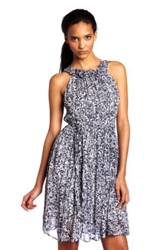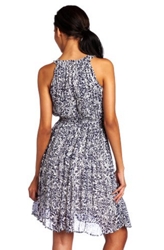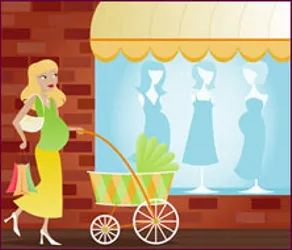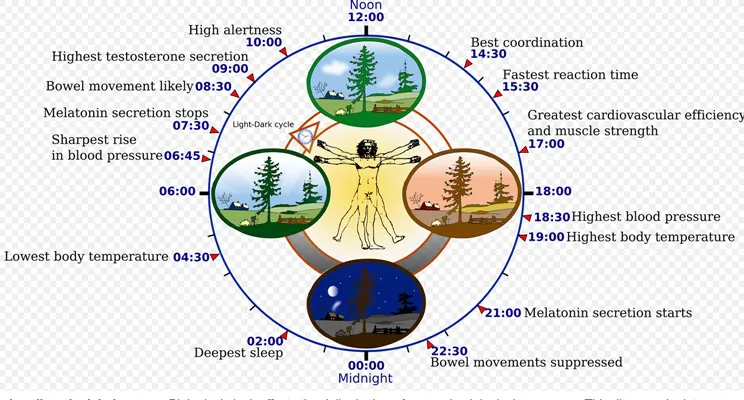
How To Find True Bargains When Shopping For Clothes
How To Find True Bargains When Shopping For Clothes As the economy remains tight and unemployment is still double digit, many shoppers are cutting corners at their favorite department stores in favor of sales racks.
As the economy remains tight and unemployment is still double digit, many shoppers are cutting corners at their favorite department stores in favor of sales racks.
In such financially lean times,it's no wonder everyone loves to talk about that “great deal” they got while shopping.
But are sales racks really that great of a deal or is it just a way to get consumers to spend their hard earned dollars without understanding what they're really getting?
According to Janet Wood, style expert and founder of Fashion Fit Formula, “a sale is a retail store’s way of flirting with you. They are saying to you, ‘come into the store and see the bargains!’ It is a very temping thing to do, especially when you are trying to supplement your wardrobe.”
Is It Really a Sale?
 Many times the higher end stores bring in sale clothing that is not up to the quality that of their non-sale items. According to Janet, “they are loss-leaders. Clothing sold at almost no profit to attract buyers into the location where they will then see the high profit clothing.”
Many times the higher end stores bring in sale clothing that is not up to the quality that of their non-sale items. According to Janet, “they are loss-leaders. Clothing sold at almost no profit to attract buyers into the location where they will then see the high profit clothing.”
This is how it works - the sale garment isn’t as nice as their other merchandise - but its cost while lower, isn’t that much lower. Just a few steps away is a rack with obviously better quality clothing. While the price is higher, it’s not that much higher.
The buyer rationalizes for just $30 to $40 more, I can get this out fit and it looks so much more expensive. That’s true, but you have just blown your clothing budget.
Are they still a bargain? Sometimes yes, but most often they are not.
• Check the quality of the fabric? Is the weave tight or loose?
• Look at the zipper; are there any puckers in the seams holding it in place? Does the bottom of the zipper area buckle?• Also make sure to check any stress seams (areas where the clothing will have additional wear). They are usually sleeves and front and back seams on pants, shorts or capris.
Where Can I Find a “True Bargain”?
 According to Janet, true bargains can be found as the seasons change and unsold items are reduced in cost. Evaluate the items you may choose to purchase carefully.
According to Janet, true bargains can be found as the seasons change and unsold items are reduced in cost. Evaluate the items you may choose to purchase carefully.
• Is it a basic staple of your wardrobe?
• Do you the necessary accessories to make this new blend of colors work?• Is this color or style going to be “out” in a year?
Think About Cost Per Wearing
Janet says, “unless your lifestyle revolves around dressing in evening clothing and going out frequently, only purchase dressy clothes when necessary. It’s important to think about cost per wearing. If you blow your budget on a “must have outfit” that you only wear once – it was very expensive indeed.”
A far better choice would be to invest that money in an article of clothing that you will wear twenty times a season. Evening separates have made it possible to significantly reduce the cost of this look by adding a new top and wearing with evening pants or long skirt.
Avoid Closet Guilt
To battle the long-known dilemma of “it doesn’t fit quite right, but it’s on sale!” Janet invented the Fashion Fit Formula, which is a mathematical system based on 12 vertical measurements of a woman’s body.
Once your personal measurements have been entered into the Fashion Fit Formula, you get a specific plan detailing how to tailor your existing wardrobe to be the most flattering on your unique body.
Janet says that the Fashion Fit Formula helps women avoid “closet guilt” and can turn those sale items you never wear into your next great outfit.
For more information, please visit www.fashionfitformula.com
More Information
Please follow me on Twitter at: http://Twitter.com/HairBoutique. I look forward to meeting new people from all walks of Twitter and learning from their Tweets. Visit us at Hairboutique.com located at: http://www.HairBoutique.com, on Facebook, MySpace and YouTube.
Thank you for visiting us at The HairBoutique Blog and for leaving your comments. They are very much appreciated. We apologize in advance but must remove any direct advertisements or solicitations.Social Media Network Information
Please follow us on Twitter at: https://Twitter.com/HairBoutique. I look forward to meeting new people from all walks of Twitter and learning from their Tweets.

















